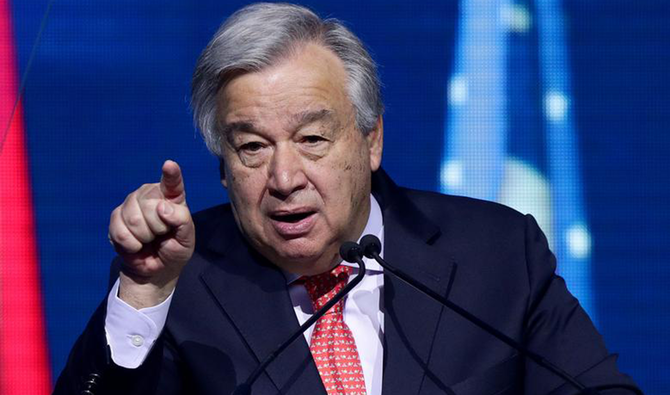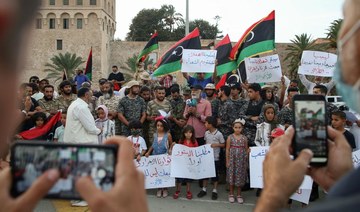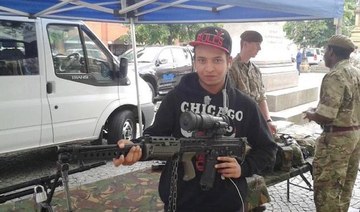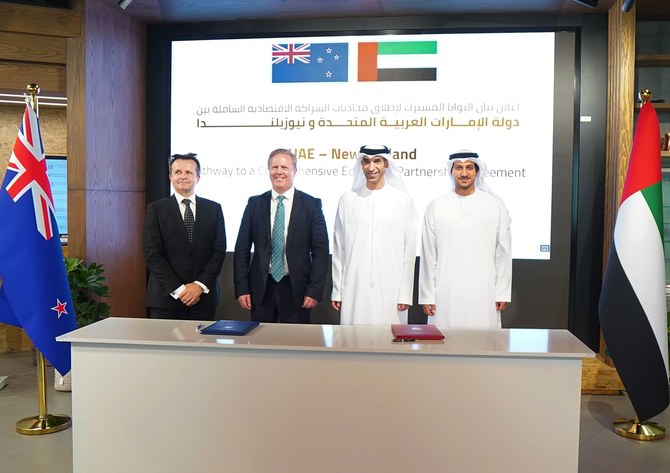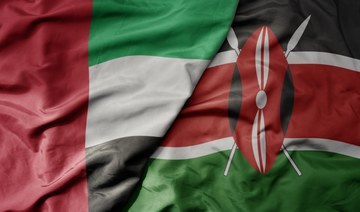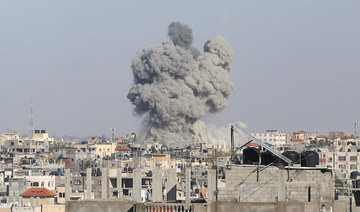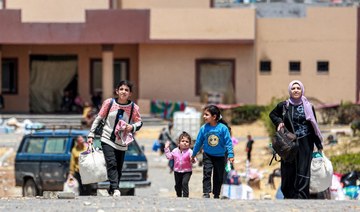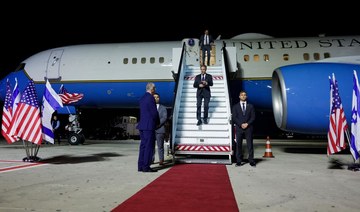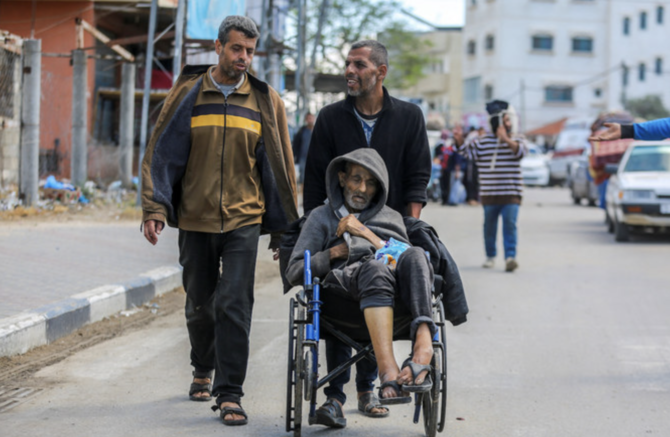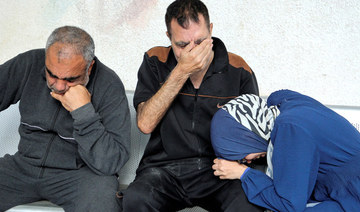NEW YORK: Secretary-General Antonio Guterres is recommending that international monitors be deployed to Libya under a UN umbrella to observe the October cease-fire agreement from a base in the strategic city of Sirte, the gateway to the country’s major oil fields and export terminals.
The UN chief said in an interim report to the Security Council on proposed cease-fire monitoring arrangements circulated Monday that an advance team should be sent to Libya’s capital Tripoli as a first step to “provide the foundations for a scalable United Nations cease-fire monitoring mechanism based in Sirte.”
Oil-rich Libya was plunged into chaos after a 2011 NATO-backed uprising toppled longtime dictator Muammar Qaddafi and split the country between a UN-supported government in Tripoli and rival authorities based in country’s east, each side backed by an array of local militias as well as regional and foreign powers.
In April 2019, east-based commander Khalifa Haftar and his forces, backed by Egypt and the United Arab Emirates, launched an offensive to try and capture Tripoli. His campaign collapsed after Turkey stepped up its military support of the UN-supported government with hundreds of troops and thousands of Syrian mercenaries.
The October cease-fire agreement called for the withdrawal of all armed forces from conflict lines and the departure of all mercenaries and foreign fighters within three months.
Guterres gave few details of the monitoring mechanism but said the Joint Military Commission, with five representatives from each of the rival sides, “has requested unarmed, non-uniformed individual international monitors to be deployed under the auspices of the United Nations.” They would work alongside joint monitoring teams from the rival Tripoli and eastern governments “for specific monitoring and verification tasks,” he said.
“The Libyan parties have also conveyed their firm position that no deployment of foreign forces of any kind, including United Nations uniformed personnel, should occur on Libyan territory,” the secretary-general said. But the commission welcomed offers of potential support to the monitoring mechanism from regional organizations including the African Union, European Union and Arab League under UN auspices.
According to the military commission’s concept, “the United Nations would be expected to provide a nimble and scalable team of impartial international monitors to carry out monitoring” in the Sirte area, Guterres said.
In they commission’s view, he said, they would “initially provide oversight and report compliance along the coastal road on the removal of military forces and mercenaries, the deployment of the joint police force, the clearance of explosive remnants of war, boobytraps and mines.”
“As soon as conditions permit, they would expand their monitoring work to the Abu Grein-Bin Jawad-Sawknah triangle, and possibly beyond,” Guterres said.
Guterres reiterated the UN’s commitment to assist and support the Joint Military Commission in operationalizing the cease-fire agreement, warning that the current delays risk failure to meet the timeline.
He pointed to military activities by forces backing both sides, as well as military cargo flights, impeding the agreement’s implementation.
“A lasting cease-fire in Libya needs above all else the buy-in of the parties and of ordinary Libyans,” the secretary-general said., and it also requires support from regional and international parties.
He urged implementation of the widely broken UN arms embargo.
Guterres said the deployment of monitors under the umbrella of the UN political mission in Libya known as UNSMIL to the area around Sirte would require funding and personnel from UN member states.
Tunisia’s UN Ambassador Tarek Ladeb, the current council president, said Monday he hopes a resolution on a cease-fire monitoring mechanism will be adopted before council members discuss UNSMIL on Jan. 28.



